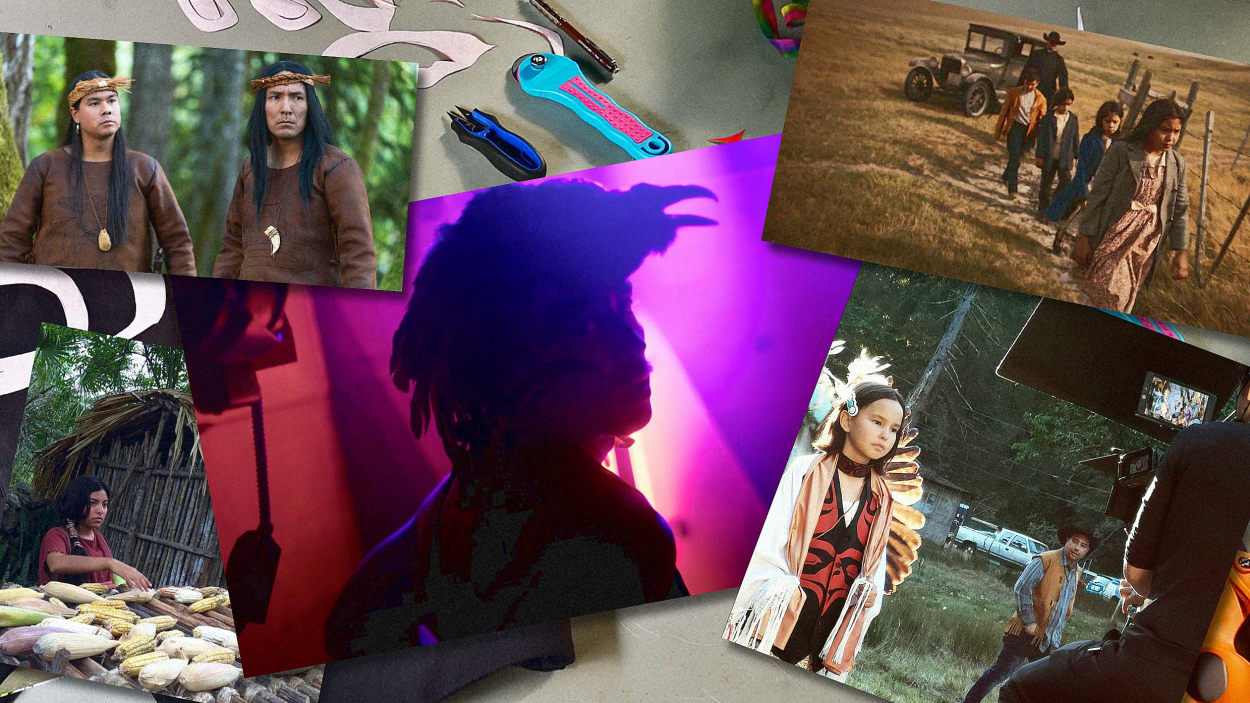Community, Leadership, Experimentation, Diversity, & Education
Pittsburgh Arts, Regional Theatre, New Work, Producing, Copyright, Labor Unions,
New Products, Coping Skills, J-O-Bs...
Theatre industry news, University & School of Drama Announcements, plus occasional course support for
Carnegie Mellon School of Drama Faculty, Staff, Students, and Alumni.
CMU School of Drama
Thursday, October 12, 2023
Hollywood still gets Indigenous costumes wrong. Carmen Thompson wants
www.fastcompany.com: Carmen Thompson, a Ditidaht/Kyuquot/Coast Salish award-winning costume designer, writer, and showrunner, describes a tense moment on the set of Bones of Crows (2022), a film written and directed by Marie Clements and playing now as a series on Canada’s CBC, about a Cree woman and her family’s survival from and fight against the racism, starvation, and abuse in Canada’s residential schools.
Subscribe to:
Post Comments (Atom)

5 comments:
This article was a great read. I learned a lot and it is clear that Thompson puts a great deal of care into what she does. Cultural appropriation and misrepresentation have been longstanding issues in the film and entertainment industry. Indigenous communities and activists have often criticized Hollywood for inaccurately depicting not only their clothing but their entire livelihoods. This can perpetuate stereotypes, undermine the diversity of Indigenous cultures, and contribute to a broader lack of understanding for our society as a whole. Like mentioned in this article it is important for educational initiatives within the film industry to promote better understanding of Indigenous cultures and histories, like with the push for dirty costumes versus the truth being just clean but pristine school uniforms. Ultimately, the call for accurate representation in costumes is part of a broader movement for diversity, inclusion, and respect in the entertainment industry. It's a reminder that the portrayal of cultures in media has real-world implications and should be approached as such.
I want to clarify before I write on this article, that I am not indigenous and therefore take everything I say with a grain of salt. However, having said that, I feel so happy to see this article. Oftentimes cultural groups of many kinds have been misrepresented in modern media, and the fact there are many people vehemently fighting this brings me so much joy. Carmen Thompson is one of these many people, and she is quite frankly a badass. The first story in this article expresses how she refused to change her costumes for the directors wishes because she knew the actual way they should be portrayed, and would not bend her will regardless of what the directors nor producer said. I think it is incredibly important we portray art in an accurate and non-offensive way and I am very proud that people are covering those who uphold those standards in the media.
I really enjoyed reading this article and seeing Thompson standing up for her work. She knew what she was doing and what she designed was right and suitable, and stood her ground even after the directors and producers came to her multiple times to tell her that she should dirty it more. Cultural appropriation and misrepresentation have always been issues in not only the film industry, but also music, movies, and just art in general. I often see films portray indigenous people wrong, and its not only indigenous people, its just any people that have a stereotype fixed onto them. I see many people making comments when reviewing a film or movie saying that this piece of clothing is wrong, and doesn’t represent the people correctly, and I think it happens more often than we think it would. But, if we did research, many of these situations can be avoidable.
It is quite unsurprising that even with as much progress as has been made people are still misrepresenting cultures. It’s also really surprising that this movie didn’t have any experts there they could consult, they had to call a relative of the costume designer instead. However, the dedication from the costume designer to stay true to what was real despite significant pressure from what seems like a number of people is quite impressive. Most people will bend or more often even break when faced with that many people pressuring them to do something especially when it’s the people that have the ability to potentially fire you. I don’t know of many people who would have held their ground like that and stuck to what is true and I hope to see it spread to the general public to maybe even help change the ignorant viewpoint that indigenous people are dirty.
I appreciate that this article exists because as a person of color and a hindu, I would want my culture to be represented in an appropriate and respectful manner. Same goes for the culture of the Indigenous people in the movie Bones of Crow. During the production process, “a producer requested that Thompson dirty the costumes of Indigenous students’ residential school uniforms for a scene. Thompson declined to do so.” It is so good to see Thompson standing up for her work and refusing to do something that is completely disrespectful to the people represented in Bones of Crow. Hollywood likes to take commonly known stereotypes, especially with underrepresented groups plus groups that consist of colored people, and spin that into a storyline that suffices media standards. In line with this, it is so awesome that they brought in an INDIGENOUS costume designer to design this movie. This way, the vision of the directors are brought to life in a realistic and proper manner. This is equally important to casting people with the ethnic and racial backgrounds that match the character that is written into a story.
Post a Comment